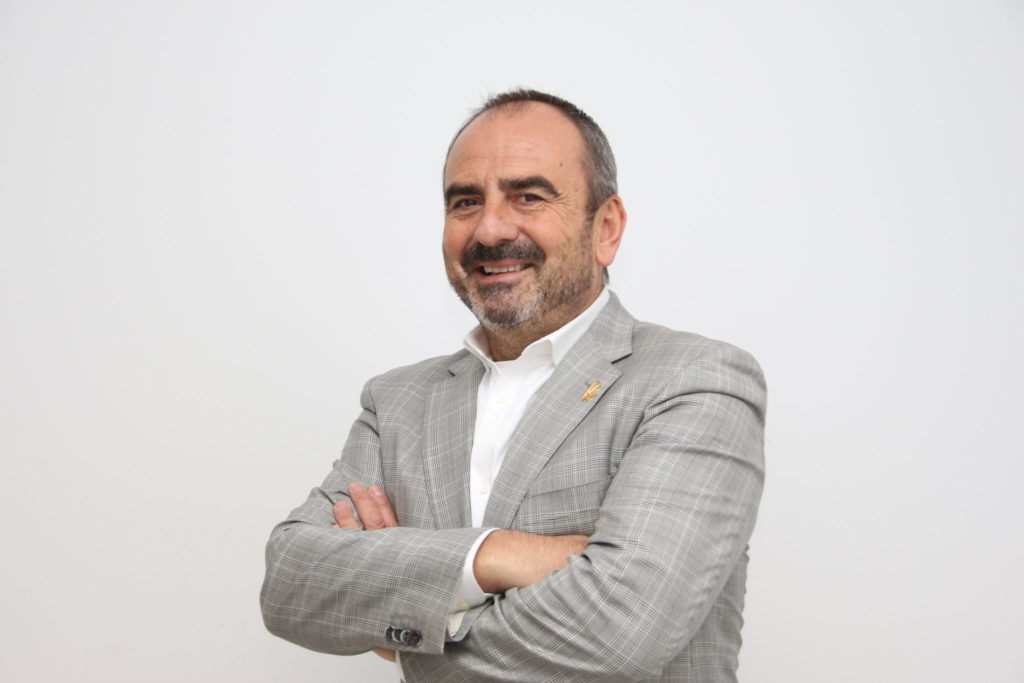We continue with the series of interviews with key players from the world of entrepreneurship, where we give a voice to people who show that it is, increasingly, a real option chosen by many. Profiles united by an enthusiastic attitude, commitment and ongoing innovation.
On this occasion we spoke to Juan Tomás Hernani, CEO of Satlantis, a space company specialising in the development of Earth observation technologies in very high resolution for small satellites. This initiative has received the support of Enagás Emprende, the Enagás Corporate Venturing programme created to accelerate start-ups and projects in the field of energy transition.
We spoke to him about how Satlantis offers an innovative solution for the detection and quantification of methane emissions and the importance of innovation in achieving climate neutrality goals.

The generation of CO2 and other greenhouse gases occurs in industry, transport, agriculture, or in phenomena such as fires, which are responsible for 9% of the annual CO2 released into the atmosphere. The way of measuring these emissions is so far fragmented, partial and not subject to time series with common methodologies and calibrations.
Space is the only place where it is legal and possible to perform this whole set of measurements. It represents a huge technological challenge, but it will be one of the big markets for the space sector.
With the support of Enagás – through Enagás Emprende -, SATLANTIS fulfils the medium-term dream of combining with the will of a user committed to the environmental footprint, in anticipation of the future emissions regulation. It gives us a logic, track record and credibility that has started to have an impact on the market.
The Centre for the Development of Industrial Technology (CDTI), which has many of the functions of what would become the Spanish space agency, is working alongside Enagás in this investment together with SEPIDES and the other SATLANTIS partners. This catapults us to offer comprehensive environmental monitoring solutions. Following its closure, we have already achieved five space missions.
The first in 2020 was with Jaxa from Japan, the second in December 2021 with NASA and the US Department of Defense from Kennedy; the third, the URDANETA mission is a satellite of its own in the visible and near-infrared spectrum. The fourth is MANTIS, funded by the UK to measure oil well activity, and the fifth is GEISAT, the satellite that will measure methane emissions with very high precision.
In addition, we are developing the international axis with an important leap to the USA, with an Oil&Gas investment partner that expands our experience with Enagás from Spain. We are also developing UK, UAE and Eastern Europe.
Satlantis offers innovative solution for detection and quantification of methane emissions
There are no master classes or magic recipes. Just work and more work, humility, a lot of austerity, a holistic view of finance-technology-market, a cult of people and the company as the small miracle that runs the company every day.
A vision that we must maintain against all odds, and in the face of all the “no’s” that we encounter on a daily basis. It is also important to have a great desire to have a good time, to enjoy the project, to more than repay the trust placed in us by our shareholders, staff, clients and institutions. These are just words, but each one is a “megaton” in the company’s difference.
I believe that the energy transition is an obligation for our society, and that it certainly depends on a trinomial: capex – technology – regulation. I believe that in Spain, energy companies such as Enagás are in a privileged position to increase their competitiveness in the new environment, but they must manage the aforementioned triangle very intelligently. Entrepreneurship can bring approaches to new technologies in a very fast and cost-effective way.
Indeed, there are trend-inflated topics, which will adjust their importance, and others that will increase it. We will need to discriminate between energy storage vectors – with their competition, cost and alternatives – from the direct consumption vectors that will grow.
When it comes to creating your own company there are no master classes, only hard work and humility
The transition has given a respite to the “commoditization” of the sector, incorporated new technology and opened new doors for 25 years. But the whole industry sees it and will compete internationally. Optimising the customer base (own or acquired) to push these flows and know how to migrate to new environments will be the key. From Space we will support as a digital sector this transformation that is happening down here.
The value is immense. We migrated from a technology push company to a measurement solutions company. Our next step is to integrate our Ground-Air-Space capability into a single, calibrated scheme, which interoperates ground cameras, drones and satellites based on customer needs. We are seeing how SATLANTIS is received in the European Space Agency, in the EU (Copernicus) and in the USA. The technological depth of the company allows us to complete these competencies with ease.